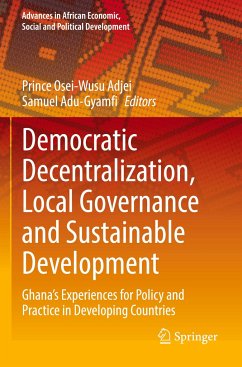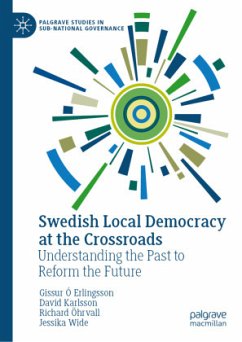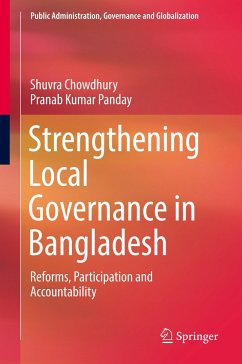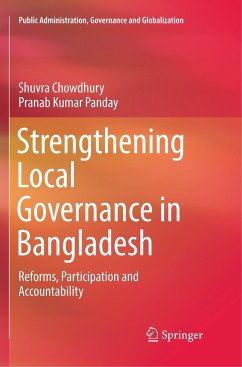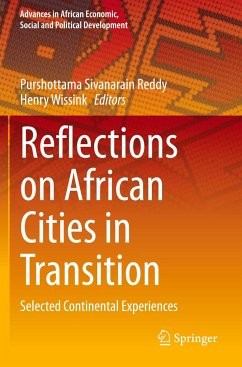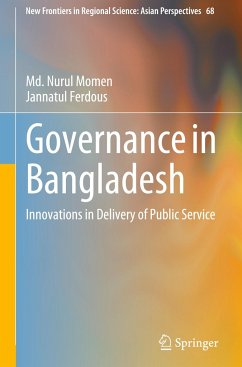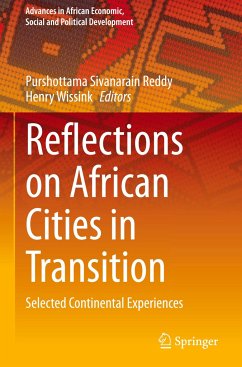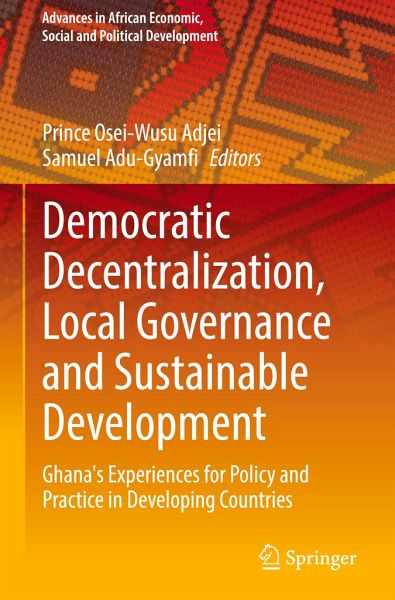
Democratic Decentralization, Local Governance and Sustainable Development
Ghana's Experiences for Policy and Practice in Developing Countries
Herausgegeben: Adjei, Prince Osei-Wusu; Adu-Gyamfi, Samuel

PAYBACK Punkte
53 °P sammeln!
Drawing on field-based data and experiences from the practice of democratic decentralization and local governance over the last three decades in Ghana, this book examines whether and how democratic decentralization and local governance reforms in developing countries have produced the anticipated development outcomes.In seventeen related contributions, the authors present four relevant focal themes, including conceptual and historical trajectories of decentralization and local governance; institutional choice, democratic representation, and poverty reduction; local governance, resource capacit...
Drawing on field-based data and experiences from the practice of democratic decentralization and local governance over the last three decades in Ghana, this book examines whether and how democratic decentralization and local governance reforms in developing countries have produced the anticipated development outcomes.
In seventeen related contributions, the authors present four relevant focal themes, including conceptual and historical trajectories of decentralization and local governance; institutional choice, democratic representation, and poverty reduction; local governance, resource capacity, and service delivery; and non-state actors, local governance and sustainable development.
The book blends perspectives of scholars, practitioners, and policy-makers to provide a holistic analysis of linkages between decentralization, local governance, and sustainable development efforts, presenting a novel and useful guide for science, policy,and practice of bottom-up governance and development. It provides relevant lessons and experiences for scholars, policy-makers, and development practitioners in Africa in particular and developing countries in general.
In seventeen related contributions, the authors present four relevant focal themes, including conceptual and historical trajectories of decentralization and local governance; institutional choice, democratic representation, and poverty reduction; local governance, resource capacity, and service delivery; and non-state actors, local governance and sustainable development.
The book blends perspectives of scholars, practitioners, and policy-makers to provide a holistic analysis of linkages between decentralization, local governance, and sustainable development efforts, presenting a novel and useful guide for science, policy,and practice of bottom-up governance and development. It provides relevant lessons and experiences for scholars, policy-makers, and development practitioners in Africa in particular and developing countries in general.





